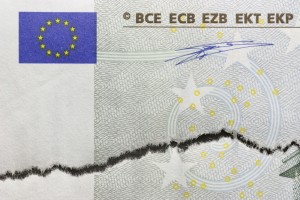 By Gary Smith
By Gary Smith
Predicting Brexit: factors that could sway the outcome of the EU referendum
 With 23 June now fixed as the date for Britain’s EU referendum, traders have a new binary type to trade: Yes/No on the outcome [A binary option on the referendum was available at IG]. Meanwhile, the pound recently fell to a 7-year low against the US dollar on the back of the Mayor of London’s announcement that he was in the leave camp; reminding us that speculation over Brexit is likely to influence movement right across the markets as we get closer to decision day.
With 23 June now fixed as the date for Britain’s EU referendum, traders have a new binary type to trade: Yes/No on the outcome [A binary option on the referendum was available at IG]. Meanwhile, the pound recently fell to a 7-year low against the US dollar on the back of the Mayor of London’s announcement that he was in the leave camp; reminding us that speculation over Brexit is likely to influence movement right across the markets as we get closer to decision day.
A lot can happen between now and June. The opposing sides are yet to get their campaigns in full swing. There remain many businesses and prominent individuals still to weigh in with their opinions. And of course, ‘events’, either international or domestic, could sway opinion. Whatever markets you focus on – and especially if you intend to take a position on the referendum itself, it’s important to be able to gauge which way public opinion is heading. With this in mind, here are some points to keep on your radar.
Remember that we are in uncharted territory
The last referendum on Europe was back in 1975, at a time when the club was still the EEC: essentially little more than a trading bloc. Most of the Eastern European countries that have swelled the institution’s membership recently were still shut firmly behind the Iron Curtain. Fast forward to the present and the British public are voting on a very different animal, where the hot topics that appear to be driving the decision making include a mix of economics, sovereignty, immigration and national security. 31 years ago, the result was a resounding 67% in favour of continued membership. This time it’s almost certainly going to be much closer. Polls fluctuate, although at present, stay maintains its lead by a margin of around 5%.
The markets take a dim view of the prospect of Brexit, not least because if its possible repercussions for inward investment and exports. But for traders, uncertainty abounds. It’s not clear what the result is going to be. It’s not clear what the consequences of Brexit could be. Also, crucially, it’s not clear what the significance of various pronouncements and events are when it comes to swaying the minds of voters. In short, in this uncharted territory, there is no playbook for traders to turn to as they react to what’s happening.
Uncertainty leads to volatility and, to some extent, a degree of overreaction. So far, we have seen USD/GBP fall to $1.40 in response to the announcement from Boris. It shed a further two cents when the Justice Secretary, Michael Gove questioned the enforceability of the deal brokered by the Prime Minister. Over the next few months, traders should expect to see plenty of seemingly significant market movement in response to events. However, given the uncertainty that surrounds the issue, and especially for traders taking a position on the referendum itself, the strength of that movement should not necessarily be regarded as an accurate predictor of the likely result of the poll.
Reading the polls: look for ‘don’t knows’ making up their minds
As those traders who took a punt on the outcome of the last general election will be especially aware, opinion polling is an inexact science. When factoring in polling information, bear in mind the following:
- 2015 election opinion polling persistently underestimated the strength of the Conservative vote. If, as is thought likely, this was due (in part, at least) to a failure to reach out and canvas Tory-voting demographic groups and if this flaw has not yet been fully rectified, it could be that the leave vote is underestimated in the polls (given that a larger proportion of Conservative voters are thought to prefer Brexit).
- Around 20% of voters are still undecided. This is a significant proportion. By default, pollsters assume that the ‘don’t knows’ will eventually fall into one or the other camp along the same lines of apportionment as those voters that have decided already. However, this is a big assumption to make. Polls are likely to become much more useful as barometers of voting intention once that 20% figure starts to go down.
- In referendums of this type, proponents of maintaining the status quo usually have an advantage. Fear of the unknown helps to drive this. It is worth bearing in mind if the two sides are neck and neck as voting day looms.
Identifying the gamechangers for Brexit binary options trades
Here are some potentially make-or-break developments that could have a significant impact on the result…
Business leaders threaten concrete steps to cut jobs and investment
So far, the most significant public intervention in this debate from the business community has been a letter to The Times from assorted FTSE 100 company leaders predictably expressing support for the stay campaign.
But this and other such statements have to date been expressed in very general terms (“We believe that leaving the EU would deter investment, threaten jobs and put the economy at risk…”). A possible gamechanger would be if several such companies announces concrete plans to relocate in the event of Brexit. Household names such as Nissan are worth watching for this.
Conversely, if other big names announce their intention to stay in the UK come what may, this relieves some of the pressure on the Brexit campaign. As an illustration, Toyota stated back in January that it will retain its presence in the East Midlands, whatever the outcome.
Politicians deviate from the party line
There were few surprises among the political figures who have broken with the Conservative leadership’s line. If, however, a senior Labour figure were to join Brexit, this would lend a stronger cross-party feel to the leave campaign, potentially widening its appeal.
Campaign implosion
The Brexit side, so far, looks fragmented, with two groups looking to lead the leave campaign. Look out for signs of infighting that may erode the credibility of the Brexit camp in the eyes of the electorate.
Foreign intervention
A key argument of the Brexit camp is that the UK will be able to negotiate bilateral trade arrangements with foreign states – and the EU itself. Especially from the likes of China, India, the EU and perhaps also US presidential candidates, look out for pronouncements from abroad that may undermine or support this argument – an example was the recent statement from the G20 suggesting Brexit would “shock” the global economy.
 By Gary Smith
By Gary Smith